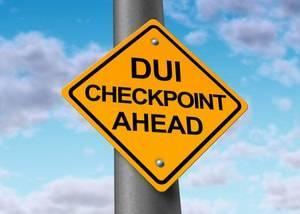Information on Texas No-Refusal Weekends
 Occurring several weekends throughout the year, Texas police officers make a valiant effort to lessen the numbers of fatalities and other accidents resulting from DUI and DWI. The most well-known efforts around the state are "No-Refusal Weekends." These events are named aptly in that refusal for testing becomes more difficult, however, it may be very misleading to unassuming drivers unfamiliar with their rights during these situations. As a United States citizen, you have certain constitutional rights on which even Texas officers cannot infringe.
Occurring several weekends throughout the year, Texas police officers make a valiant effort to lessen the numbers of fatalities and other accidents resulting from DUI and DWI. The most well-known efforts around the state are "No-Refusal Weekends." These events are named aptly in that refusal for testing becomes more difficult, however, it may be very misleading to unassuming drivers unfamiliar with their rights during these situations. As a United States citizen, you have certain constitutional rights on which even Texas officers cannot infringe.
How No-Refusal Weekends Work
No-Refusal Weekends occur around major holidays or sporting events, such as Thanksgiving Day, New Years, and the Super Bowl. With plenty of audio and visual advertisement alerting drivers the weekend is near, the intent is to crack down on the amount of drivers operating vehicles while intoxicated. However, the name is confusing to many who incorrectly assume you have to succumb to any requested testing.
You have the right to refuse a breath or chemical test for alcohol or drugs every day of the year. Most days, if you refuse, the process for compliance is rather lengthy as the officer must obtain a warrant from a judge. The difference on No-Refusal Weekends is that larger cities such as San Antonio, Houston, and Austin utilize localized grant funding to increase resources available during a predetermined length of time. By doing this, the process of obtaining a warrant as well as chemical testing becomes streamlined. With a few phone calls to available contacts, completion of a warrant and a blood test can be done at the site of the traffic stop. Typically, those that are "on call" include:
- Court magistrates to sign orders,
- Phlebotomists to perform blood draws, and
- Additional officers specifically assigned to DUI/DWI.
You Can Refuse Politely
Despite the name of the weekend, you can still decline any request for DWI testing. In the state of Texas, you are within your legal right to drive, so long as you are not intoxicated or otherwise impaired. Upon arrest, the job of the officer is to create probable cause to justify a breathalyzer or chemical test. There is no requirement for you to agree to establish evidence against yourself.
If you have been pulled over due to suspicion of drinking and driving, it is imperative that you understand your charges and your rights. You do not have to accept allegations brought against you, and doing so may harm you in the long run. If you are interested in learning your options, contact a San Antonio DWI defense attorney, at the Law Offices of Sam H. Lock. Call 210-226-0965 to schedule your initial consultation.
Source:
http://www.statutes.legis.state.tx.us/Docs/TN/htm/TN.724.htm





